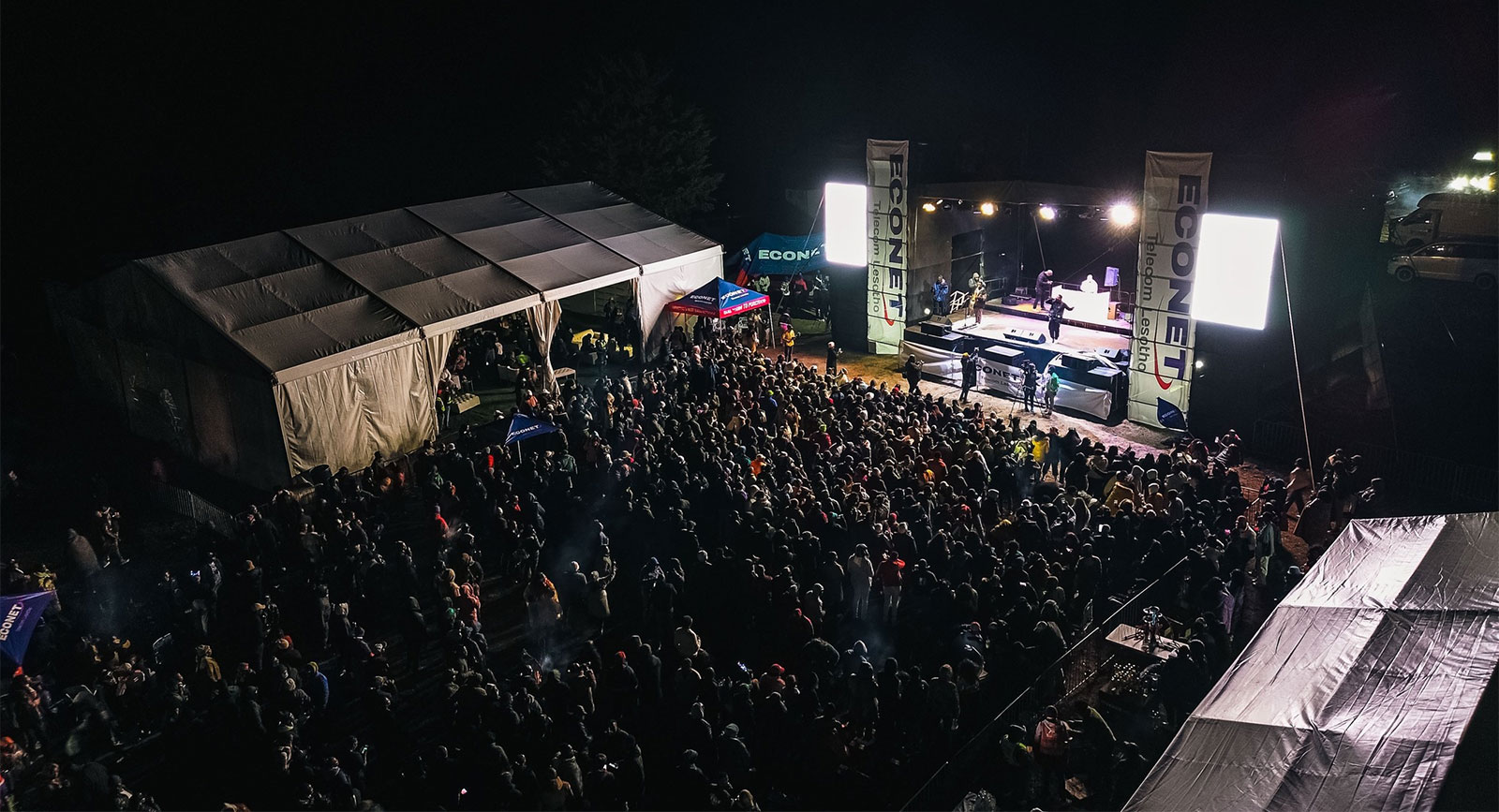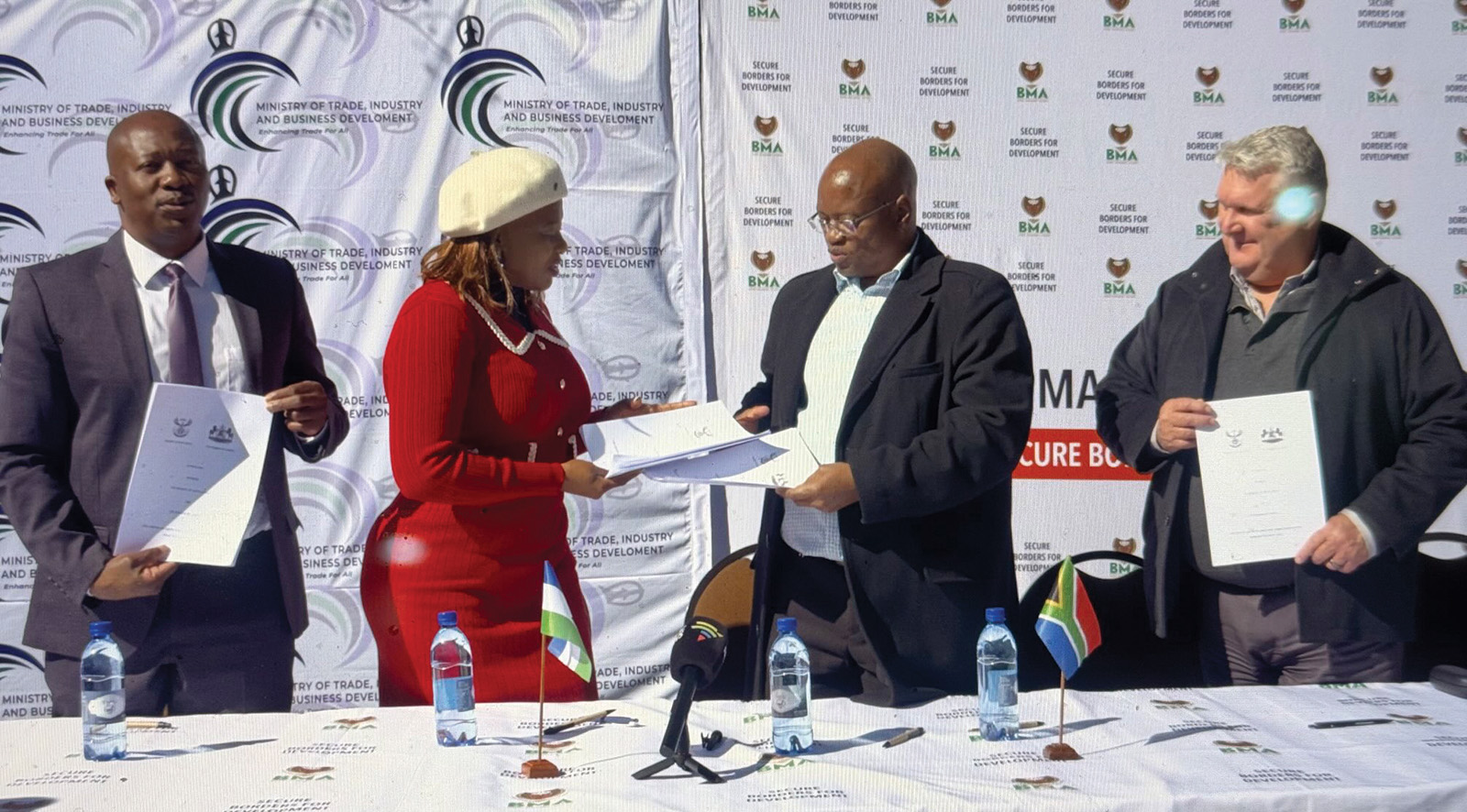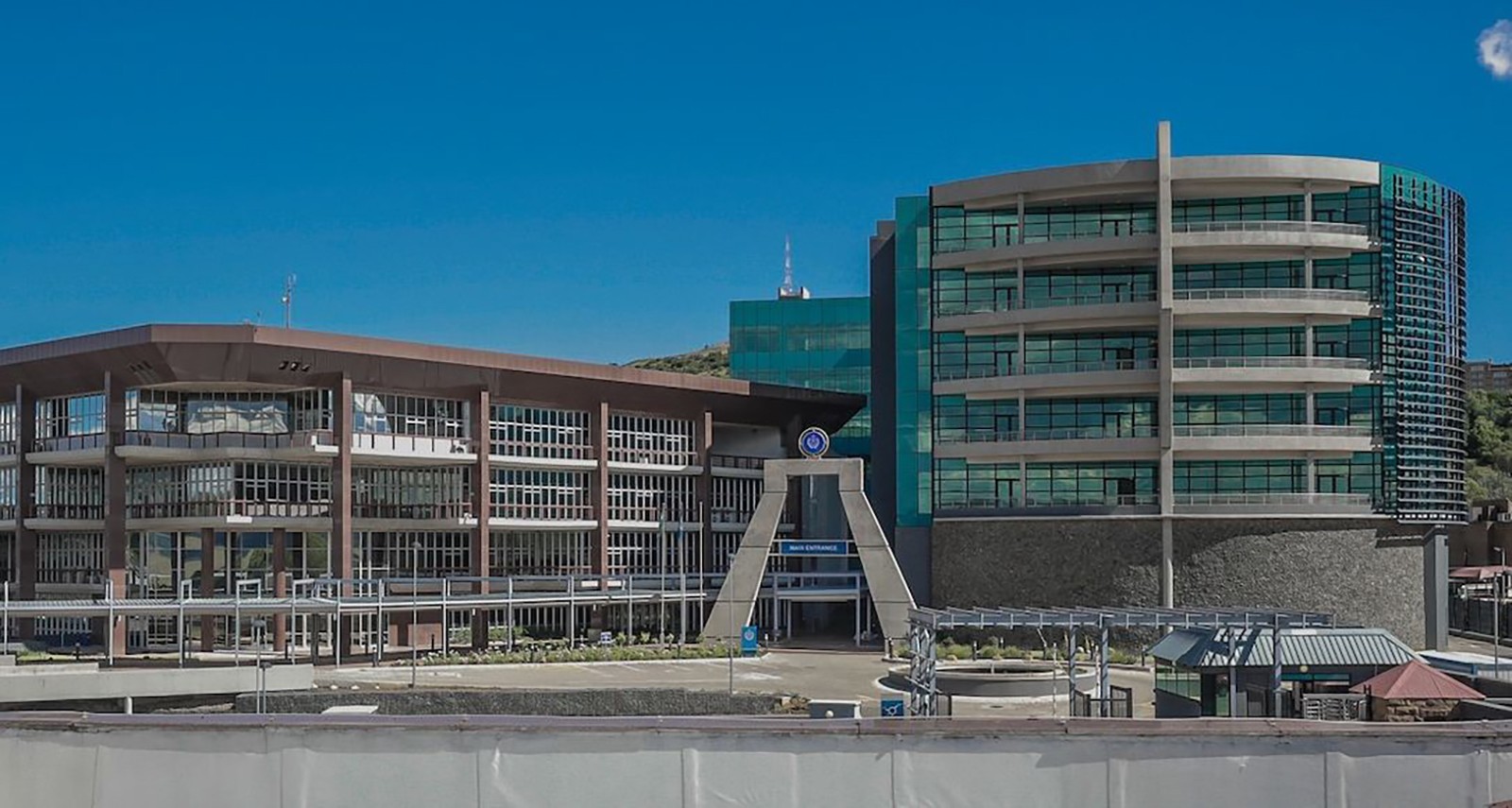Local sub-contracts demand 30%

SHARE THIS PAGE!
‘Mantšali Phakoana
Community leaders have made an impassioned plea to the government to ensure that foreign construction companies awarded tenders sub-contract 30 percent of their work to local businesses.
Their remarks follow the awarding of multi-million maloti tenders to two foreign companies for work on the Lesotho Lowlands Water Development Project Phase II (LLWDP II).
A Botswana construction company, UNIK secured a M421, 338, 121 tender for the construction of transmission mains, pumping stations and reservoirs in Maputsoe.
The firm will construct and install a 28km steel transmission pipeline and about three concrete reservoirs as well as one pressed tank, over a period of 16 months.
The Project also awarded Chinese company Qingjian Construction two contracts worth M146, 301, 370 and M211, 759, 356, respectively. The first contract is for distribution networks for Hlotse, Ha-Lesiamo, Khanyane, while the second is for constructing distribution networks for Tsikoane, Maputsoe and Mpharane, as well as installation of 390 km of uPVC pipe up to DN630 with all associated valves, fittings and infrastructure, and a 15 HH connection.
The project is funded by the World Bank (Hlotse and Maputsoe) and the European Investment Bank in partnership with the European Union (Mafeteng and Mohale’s Hoek).
Members of parliament for Mahobong and Mafeteng constituencies, Nkhethoa Seetsa, Moeketsi Motšoane as well as Mafeteng district administrator, Bonang Moranye who attended the meeting welcomed the project.
They further emphasised the need for foreign construction companies to award sub-contracts to local companies in their areas of specification and capabilities.
This followed a presentation by the (LLWDP II) and the ministry of natural resources and water affairs this week. The meeting was attended by MPs, principal chiefs, and district administrators for Hlotse, Maputsoe, Mafeteng and Mohale’s Hoek where projects are being undertaken.
Moranye said he was concerned that competent local businesses were never sub-contracted even on several projects that came before the LLWDP II.
“It is great to see another positive development in the delivery of these projects, but we plead with the government and its implementing partners to ensure that local businesses are given sub-contracts,” Moranye noted.
For his part, Seetsa indicated that their desire is to see foreign contractors changing and developing the livelihoods of communities they are operating in.
“We are expecting the government and stakeholders to ensure that contractors fulfil this responsibility.
“We have Basotho owning trucks required for construction projects. If they could not qualify for the main contracts at least they should be sub-contracted.
“Every time we are told local businesses will be given a certain portion of contracts, but we have never seen it happening. This issue has always caused conflicts between local business and the foreign contractors because the latter have always been doing as they please,” he pointed out.
Motšoane, who is also the chairperson of parliamentary portfolio committee on natural resources, tourism and land cluster, blamed government for setting high requirements for bidding even for minor projects.
He said the high requirements hindered interested local construction businesses from bidding, adding that for those who do, they always fail to win due to these requirements.
Motšoane stressed that there was need for regulations to force foreign companies to sub-contract their work to local businesses.
“We have to bring services to our people,” Motšoane said.
The LLWDP II noted that the government had committed that 30 percent of contracts should go to local businesses when China Qingjian and UNIK begin construction on Phase 1, 2 and 3 of the project.
The minister of natural resources, Mohlomi Moleko, is on Monday next week expected to have a meeting with local contractors to deliberate on their involvement in the construction of the project.
The project’s sod-turning ceremony will be led by prime minister Sam Matekane on February 22.
Giving an overview of the LLWDP II project, programme manager Mathealira Lerotholi recalled that in 2002, the government through the support of the European Union, envisaged the project as a long-term plan to ensure sustainable access to water in the lowlands.
The main purpose, he said, was to treat and deliver water for households, as well as agricultural and industrial use in the lowlands of Lesotho.
Lerotholi also stated that they have identified eight reliable or sustainable supply zones in the lowlands to supply more than 60 percent of the people in Botha-Bothe and Quthing.
Lerotholi highlighted at least M68.4 million has been reserved to cover all the expenses during construction while a total of M20 million will be used to compensation people who will be affected by the project.
About 1.1 million individuals, small holder farmers, heavy industry, and small businesses are expected to benefit from the project.
“We urge you as community leaders to oversee that the funds are used only for their specific purpose to benefit the Basotho nation,” Lerotholi said.
“LLWDP is leading when it comes to support from the World Bank, with US$78 million set aside for 10 active projects in the Lesotho portfolio as guided by the Country Partnership Framework,” he noted.
The project is categorised into four components; infrastructure, management and institutional support, improvement of Water and Sewage Company (WASCO), and contingent emergence response.
LLWDP II deputy project manager ‘Nena Leshoboro noted that monetary compensations of EURO 652,513 were paid out to about 33 percent of affected households from Mohale’s Hoek, Mafeteng, Hlotse and Maputsoe.
He stated that the project has also completed all safeguards constancies, completion (construction) of the Maputsoe borehole, where about 1.2Ml/d was added to the already existing Maputsoe system, civil works at the hydrometric station in Hlobola, Ha Setene, Maoamafubelu, Masianokeng and Thaba-Phatšoa villages.
Leshoboro said during the tendering process, the government followed all legal procedures and funders’ regulations.
A higher number of local companies had tendered for work but could not qualify due to lack of skills and annual turnover required, he further revealed.
He explained that foreign contracts are expected to give a maximum 30 percent to local sub-contractors.
“We are expecting to see awarded companies giving transport sub-contracts to local businesses who have dump trucks, excavators and loaders among others. We know they have such equipment and machinery.”
More than 5, 500 unskilled labour and 150 skilled labour job opportunities would be created during the construction for both Zone 2 and 3 (Hlotse and Maputsoe) as well as Zones 6 and 7 (Mafeteng and Mohale’s Hoek.
“If completed, at least 30 to 50 fulltime jobs opportunities will be created for operations at plants facilities.
“More than LSL100 million is expected to be collected as withholding tax and value added tax by the Revenue Services Lesotho,” he said.
At least 1000 more Basotho are expected to be hired during the construction of bulk transmissions and installation of pipes in Leribe district.
At least 95 percent of Basotho will benefit from the project by 2030.

CityzeenLs nears 1 million YouTube views
9 days ago


New border plan to advance regional trade
12 days ago
Foul language lands man in court
12 days ago
Youth demand action on unemployment
12 days ago
Ex-ministers threaten to sue govt
12 days ago
CBL launches LERIMA awareness campaign
12 days ago

Youth unemployment declared a state of emergency
14 days ago